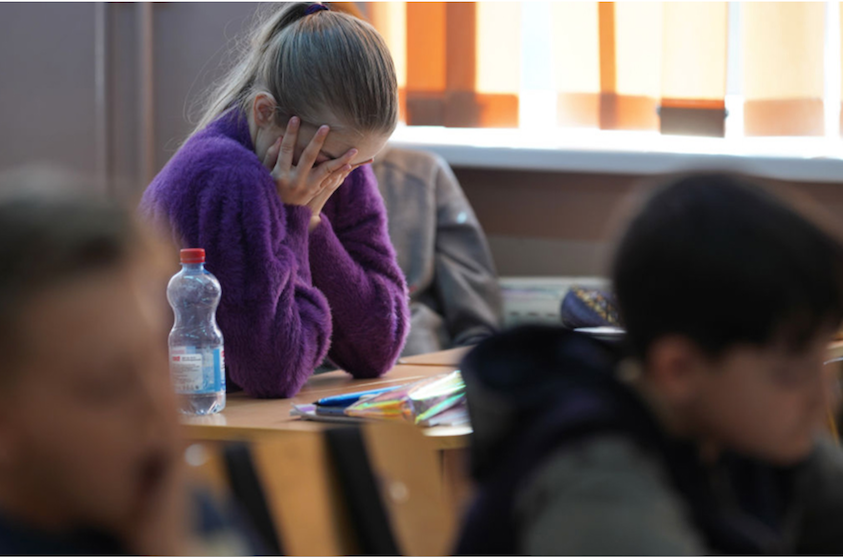
Two months ago, a two-story peach-colored building with a playground housed a kindergarten for 30 autistic children in Kyiv, Ukraine. But since Russia attacked the country on 24 February, the structure has served instead as a shelter, with the families who once received therapy and an education there — and the therapists themselves — now taking advantage of its secure basement, kitchen and food storage. All autism-related services, save for a few online sessions, have stopped. (For the group’s safety, Spectrum is not naming the center.)
The director of the foundation that runs the center, Iryna Sergiyenko, has pivoted too: Instead of running a school, she’s fielding requests from dozens of families with autistic children who need help and have, in many cases, fled Ukraine, as she has. Through messaging apps and a Facebook group she set up called ‘Ukraine autism HELP,’ Sergiyenko — who has an autistic younger brother — responds to a litany of common pleas: Will there be autism services where I am going? How do I explain why we left, and why my child’s father stayed behind? Are there any therapists who speak Ukrainian where I am?
She is one of many autism professionals scrambling to address the needs of Ukrainian autistic people whose lives have been upended. Across Europe and elsewhere, many have opened up their schools, connected families with therapists who speak Ukrainian, and collected medications and autism-friendly toys. They are raising money to support families or, like Sergiyenko, keep the lights on somewhere. One of the mothers Sergiyenko helped left for Bulgaria, noticed a lack of autism services there and immediately started organizing providers, with Sergiyenko’s support.
“That’s what we do,” Sergiyenko says. “We don’t like to sit still.”
“The biggest concern is that our kids really have fewer resources to cope, and in some cases lesser ability to understand what’s happening,” she says. Read more
